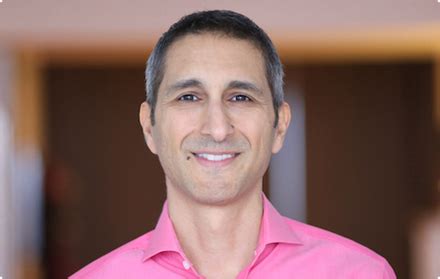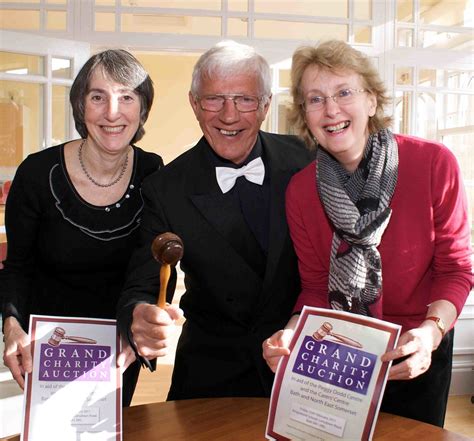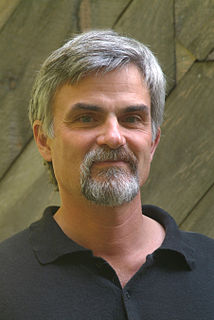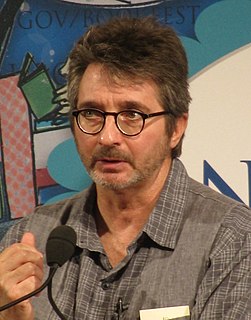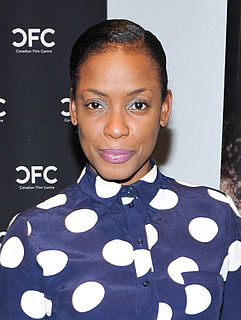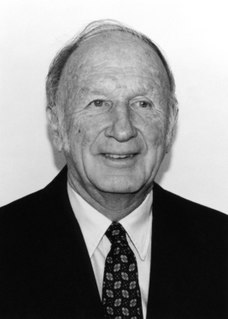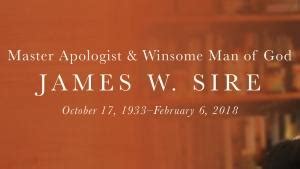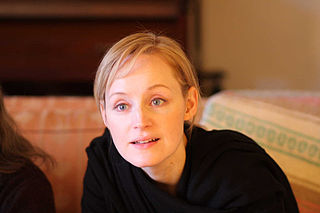Top 882 Incorrect Assumptions Quotes & Sayings - Page 13
Explore popular Incorrect Assumptions quotes.
Last updated on April 20, 2025.
The work of an intellectual is not to mould the political will of others; it is, through the analyses that he does in his own field, to re-examine evidence and assumptions, to shake up habitual ways of working and thinking, to dissipate conventional familiarities, to re-evaluate rules and institutions and to participate in the formation of a political will (where he has his role as citizen to play).
We live with such easy assumptions, don't we? For instance, that memory equals events plus time. But it's all much odder than this. Who was it said that memory is what we thought we'd forgotten? And it ought to be obvious to us that time doesn't act as a fixative, rather as a solvent. But it's not convenient--- it's not useful--- to believe this; it doesn't help us get on with our lives; so we ignore it.
How wrong to think I was anyone else, like thinking grass stains make you a beautiful view, like getting kissed makes you kissable, like feeling warm makes you coffee, like liking movies makes you a director. How utterly incorrect to think it any other way, a box of crap is treasures, a boy smiling means it, a gentle moment is a life improved.
People have had certain assumptions in the past about Conservative governments, partly because of some of the things that happened in the 1980s, and partly because of the tone of some of the debate in the 1980s that appeared to say public spending on the arts was something you might want to progressively reduce.
Love chooses to believe the best about people. It gives them the benefit of the doubt. It refuses to fill in the unknowns with negative assumptions. And when our worst hopes are proven to be true, love makes every effort to deal with them and move forward. As much as possible, love focuses on the positive.
Aberjhani's writing blows the mind and frees the psyche of any rigid assumptions about ancestral heritage. Here, our collective experience is starkly rendered. The transparency of one culture overlays another, and another, to form the daguerreotype of possibilities that is homo sapiens, interacting, almost like the elements themselves, with the created world and modified only by context and its imperatives.
Talking about morality can be offensive. Morality is a politically incorrect subject. Many people are genuinely offended if someone speaks of morality and family values. It is okay if you talk about your sexual fantasies and deviances. This is called "liberation". But you would be frowned at if you talk about morality in public. Then you'd be accused of trying to impose your values on others.
Religion itself cannot but be dynamic which is why "return" is an incorrect term. A return to the forms of religion which perhaps existed a couple of centuries ago is absolutely impossible. On the contrary, in order to combat modern materialistic mores, as religion must, to fight nihilism and egotism, religion must also develop, must be flexible in its forms, and it must have a correlation with the cultural forms of the epoch.
One way to read the Book of Mormon is as a book of encounters between fathers and sons. Some of those encounters were very positive and reinforcing on the part of the father of a son. Some were occasions where a father had to tell his son or his sons that the path that they were following was incorrect before the Lord.
If I indulge myself and surrender to memory, I can still feel the knot of excitement that gripped me as I turned the corner into Rue Mimosas, looking for the house of Rene Magritte. It was August, 1965. I was 33 years old and about to meet the man whose profound and witty surrealist paintings had contradicted my assumptions about photography.
Families are like countries. They have their own language and jokes and secrets and assumptions about the right and wrong ways of doing things, and some of that always shows in the children, the way something of Germany or Australia always shows in a German or an Australian, no matter where they go. Outsiders like it or they don't, they feel at home there or they don't. It's like the taste of cilantro.
What we take ourselves to be doing when we think about what is the case or how we should act is something that cannot be reconciled with a reductive naturalism, for reasons distinct from those that entail the irreducibility of consciousness. It is not merely the subjectivity of thought but its capacity to transcend subjectivity and to discover what is objectively the case that presents a problem....Thought and reasoning are correct or incorrect in virtue of something independent of the thinker's beliefs, and even independent of the community of thinkers to which he belongs. (p. 71)
Poets are excellent students of blizzards and salt and broken statuary, but they are always elsewhere for the test. Any intention in the writing of poetry besides the aim to make a poem, of engaging the materials, SHOULD be disappointed. If the poet does not have the chutzpah to jeopardize habituated assumptions and practices, what will be produced will be sleep without dream, a copy of a copy of a copy.
People have had certain assumptions in the past about Conservative governments, partly because of some of the things that happened in the 1980s, and partly because of the tone of some of the debate in the 1980s that appeared to say public spending on the arts was something you might want to progressively reduce.
Most of all we need an education which will create an educated mind. This is a mind not simply a repository of information and skills, but a mind that is a source of creative skepticism, characterized by a willingness to challenge old assumptions and to be challenged, a spaciousness of outlook, and convictions that are deeply held, but which new facts and new experiences can always modify.
Much like teaching art to young art students age 10 to 15 or so on, you have to break it down into bite-sized pieces, essential components. You have to - you know, at this point I'm so used to operating within given assumptions about art. But when you're explaining art to art students or people who are new to this experience, you have to really go back to the fundamentals.
We tend to speak of sin in very personal and individual terms. Jeremiah does not downplay that, but he also sees how a whole society can be bound up in the tentacles of sin, in the assumptions that everybody around you makes, about how it becomes easier to sin than not to, and how we can become so confused and contradictory in our reactions, when sin is pointed out.
The Theatre of the Absurd ... can be seen as the reflection of what seems to be the attitude most genuinely representative of our own time. ? The hallmark of this attitude is its sense that the certitudes and unshakable basic assumptions of former ages have been swept away, that they have been tested and found wanting, that they have been discredited as cheap and somewhat childish illusions.
Mathematics is a presuppositionless science. To found it I do not need God, as does Kronecker, or the assumption of a special faculty of our understanding attuned to the principle of mathematical induction, as does Poincaré, or the primal intuition of Brouwer, or, finally, as do Russell and Whitehead, axioms of infinity, reducibility, or completeness, which in fact are actual, contentual assumptions that cannot be compensated for by consistency proofs.
[Science] is not perfect. It can be misused. It is only a tool. But it is by far the best tool we have, self-correcting, ongoing, applicable to everything. It has two rules. First: there are no sacred truths; all assumptions must be critically examined; arguments from authority are worthless. Second: whatever is inconsistent with the facts must be discarded or revised. ... The obvious is sometimes false; the unexpected is sometimes true.
Some feel that you lose your independence if you don't let your mind just wander where it wants to, if you try to control it. But that is not the case. If your mind is proceeding in the correct way, one already has the correct opinion. But if your mind is proceeding in an incorrect way, then it's necessary, definitely, to exercise control.
Big bang cosmology is probably as widely believed as has been any theory of the universe in the history of Western civilization. It rests, however, on many untested, and in some cases untestable, assumptions. Indeed, big bang cosmology has become a bandwagon of thought that reflects faith as much as objective truth.
Unfortunately for ethical egoism, the claim that we will all be better off if every one of us does what is in his or her own interest is incorrect. This is shown by what are known as "prisoner's dilemma" situations, which are playing an increasingly important role in discussions of ethical theory... At least on the collective level, therefore, egoism is self-defeating - a conclusion well brought out by Parfit in his aforementioned Reasons and Persons.
Many of the greatest works of philosophy seem to me to be valuable not because of their arguments, but because they offer us perspectives that open up new possibilities. They show us how we might start in different places, and not buy into the assumptions tacitly made on the first pages of the philosophical works that have influenced us.
Modern marriage is first and foremost a romantic and private union, but the tax laws and inheritance laws and religious implications that still surround this institution indicate that marriage has evolved without casting away its earlier purposes or assumptions. It's like we just keep building on this thing, piling new advancements on the old model.
Investors should be skeptical of history-based models. Constructed by a nerdy-sounding priesthood using esoteric terms such as beta, gamma, sigma and the like, these models tend to look impressive. Too often, though, investors forget to examine the assumptions behind the models. Beware of geeks bearing formulas.
'Halal in the Family' will expose a broad audience to some of the realities of being Muslim in America. By using satire, we will encourage people to reconsider their assumptions about Muslims, while providing a balm to those experiencing anti-Muslim bias. I also hope those Uncles and Aunties out there will crack a smile!
For example, the idea that objects have properties out there in fixed ways is an incorrect idea about the world. Properties are created through relationships and processes. They are not inherent in electrons or photons or quanta any more than they are inherent in soil or trees or people. So my critique of reductionistic science is a critique that I have inherited from my scientific training. But it has been deepened by my experiences as an ecologist, in seeing the ecological destruction taking place today.
It is not easy to convey a sense of wonder, let alone resurrection wonder, to another. It’s the very nature of wonder to catch us off guard, to circumvent expectations and assumptions. Wonder can’t be packaged, and it can’t be worked up. It requires some sense of being there and some sense of engagement.
I think the American people would be compassionate and practical. But we need to be talking about assimilation as well, something that is politically incorrect, I know, to say that people should learn English, should learn American exceptionalism, shouldn't come here to use our freedoms to undermine the freedoms we give to everybody. But there's nothing wrong with saying people who want to come here should want to be Americans.
People are always shocked to hear I'm an athlete by profession and even more shocked when they hear I'm a fencer from the United States. I challenge the stereotype that Muslim women are oppressed and that a Muslim can be American by birth. It's amazing how many assumptions people make, but I embrace the opportunity to use this Olympic platform to educate.
When I was fourteen, my father was so ignorant I could hardly stand to have him around. When I got to be twenty-one, I was astonished at how much he had learned in seven years. See what happens when you "know it all", at any stage of life? Farther down the track you may see clearly how certain personal opinions, held onto too tightly, could be fogging up the view, and providing incorrect insight. Prosperity is the best protector of principle.
My point is that it's incorrect to say that the Iraq policy isn't working. It is working. It is doing what they want. They have got control of the oil and they are exporting it, and they have stripped a government that was 90% state owned and they are privatizing it. ... They have taken a country that was self defining and self developing and is now an impoverished prostrate devastated country where people will line up to work for slave wages or become members of the police or army because it's the only job they can get and serve as adjuncts to U.S. imperialism.
There will always be people that will have assumptions about you, about my character, my personality, or that I might put on a show of being gay or something, or that I play up stereotypes or anything like that. It's always funny to me that those people are typically the people that know me the least.
I am still a consumer; the consumer world was the world I emerged into, whose air I breathed for a very long time, and its assumptions still dominate my psyche—but maybe a little less each year....There are times when I can feel the spell breaking in my mind….There are times when I can almost feel myself simply being.
Of the various executive abilities, no one excited more anxious concern than that of placing the interests of our fellow-citizens in the hands of honest men, with understanding sufficient for their stations. No duty is at the same time more difficult to fulfil. The knowledge of character possessed by a single individual is of necessity limited. To seek out the best through the whole Union, we must resort to the information which from the best of men, acting disinterestedly and with the purest motives, is sometimes incorrect.
Even though I want to expand the number of ways in which skilful ironic play happens, I suspect I'm probably guilty of the same shortcoming - and I hope that, one of these days, someone will claim that my book, while it goes in a salutary expansive direction, doesn't go far enough, that there are assumptions I make that show I've missed aspects of Mann's irony and ambiguity.
The Left doesn't realize that unless you create a formative culture and a critical consciousness capable of changing the way people think about the common sense assumptions that drive their lives, then you've got an ideological foundation for totalitarianism that not only destroys the capacity to think critically, it destroys the capacity to have convictions at all.
A woman who occupies the same realm of thought with man, who can explore with him the depths of science, comprehend the steps of progress through the long past and prophesy those of the momentous future, must ever be surprised and aggravated with his assumptions of leadership and superiority, a superiority she never concedes, an authority she utterly repudiates.
Class is much more than Marx's definition of relationship to the means of production. Class involved your behavior, your basic assumptions, how you are taught to behave, what you expect from yourself and from others, your concept of a future, how you understand problems and solve them, how you think, feel, act.
A worldview is a commitment, a fundamental orientation of the heart, that can be expressed as a story or in a set of presuppositions (assumptions which may be true, partially true or entirely false) which we hold (consciously or subconsciously, consistently or inconsistently) about the basic constitution of reality, and that provides the foundations on which we live and more and have our being.
Engineers are not superhuman. They make mistakes in their assumptions, in their calculations, in their conclusions. That they make mistakes is forgivable; that they catch them is imperative. Thus it is the essence of modern engineering not only to be able to check one's own work but also to have one's work checked and to be able to check the work of others.
As a society, you were unwilling to reflect upon the shared pain that united you with those who attacked you. You retreated into myths of your own difference, assumptions of your own superiority. And you acted out these beliefs on the stage of the world, so that the entire planet was rocked by the repercussions of your tantrums, not least my family, now facing war thousands of miles away.
I have come to accept that I'm a very spiritual person. However, it's interesting because part of me shies away from admitting that because I think that comes with assumptions. I think, when I was younger, I used to make judgments about people who were super spiritual. And I think it's a very personal subject.
Most people, when they imagine New England, think about old colonial homes, white houses with black shutters, whales, and sexually morbid WASPs with sensible vehicles and polite political opinions. This is incorrect. If you want to get New England right, just imagine a giant mullet in paint-stained pants and a Red Sox hat being pushed into the back of a cruiser after a bar fight.
The task of evolutionary psychology is not to weigh in on human nature, a task better left to others. It is to add the satisfying kind of insight that only science can provide: to connect what we know about human nature with the rest of our knowledge of how the world works, and to explain the largest number of facts with the smallest number of assumptions.
The paradox is that we have this amazing capacity in our minds and hearts to learn and gain insights and then to build a kind of personal storehouse of knowledge. The underside is that those insights harden and fill the spaces in our hearts and minds. They become assumptions, conclusions and judgments.
George: 'Ringo would always say grammmatically incorrect phrases and we'd all laugh. I remember when we were driving back to Liverpool from Luton up the M1 motorway in Ringo's Zephyr, and the car's bonnet hadn't been latched properly. The wind got under it and blew it up in front of the windscreen. We were all shouting, 'Aaaargh!' and Ringo calmly said, 'Don't worry, I'll soon have you back in your safely-beds.
All of us cherish our beliefs. They are, to a degree, self-defining. When someone comes along who challenges our belief system as insufficiently well-based - or who, like Socrates, merely asks embarrassing questions that we haven't thought of, or demonstrates that we've swept key underlying assumptions under the rug - it becomes much more than a search for knowledge. It feels like a personal assault.
What's in yesterday's newspaper is today's fish-and-chip paper. If it really affects my life so badly, so personally, then I would do something about it. When it's really out of order, or something possibly detrimental to my family, or I'm driven to such a level that I know that this can be picked up and repeated again, I will just write or e-mail the newspaper editor. So, in the next day's newspaper, it might say, "Tracey Emin says this is factually incorrect."
Why would scientists dedicated to uncovering the truth about the natural world deliberately misrepresent the work of their own colleagues? Why would they spread accusations with no basis? Why would they refuse to correct their arguments once they had been shown to be incorrect? And why did the press continue to quote them, year after year, even as their claims were shown, one after another, to be false?


